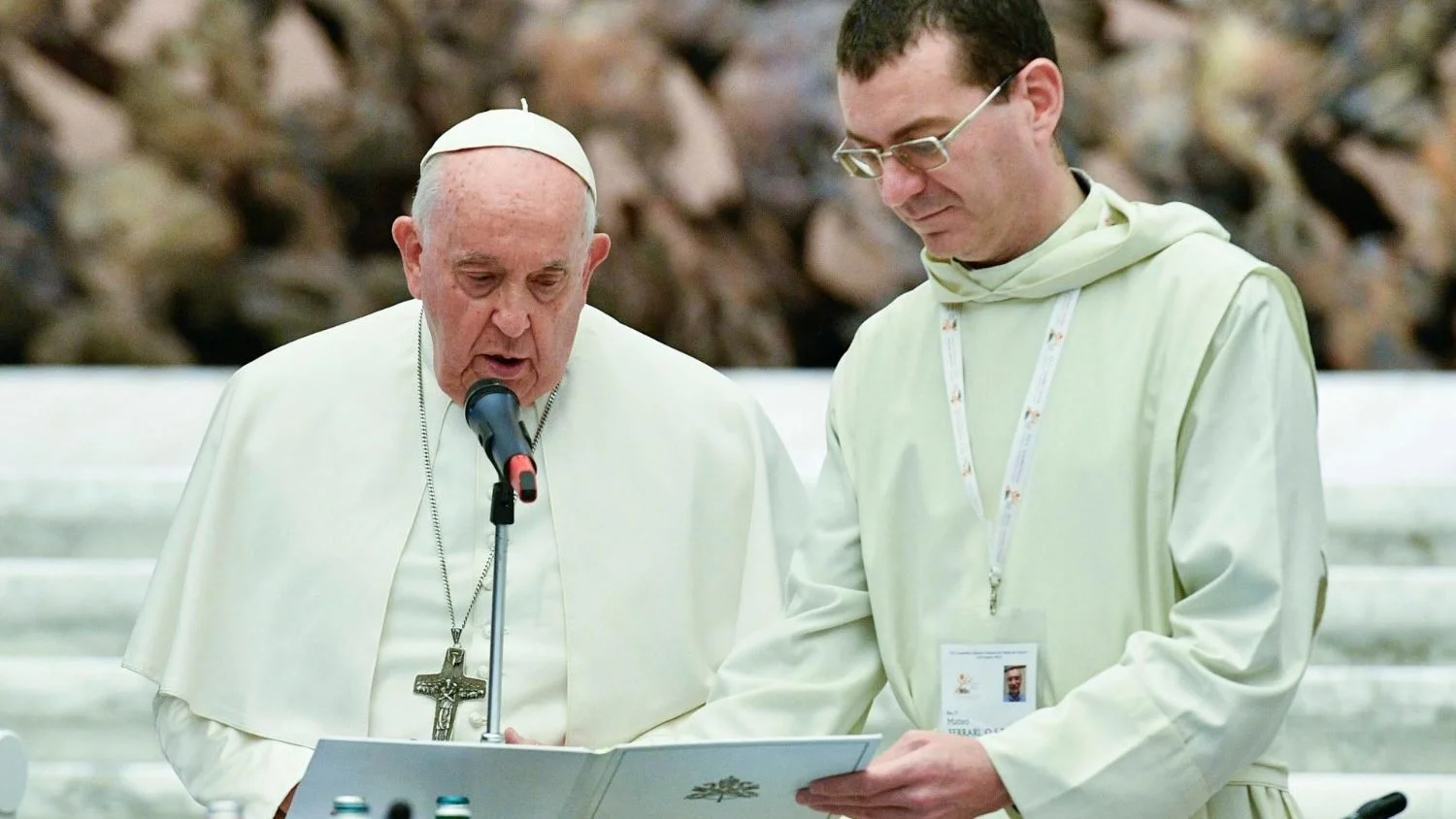His Holiness Pope Francis: I like to think of the Church as God’s faithful people
His Holiness Pope Francis at the XVIII General Congregation (Vatican Media)
In an intervention delivered at the beginning of Wednesday afternoon’s General Congregation of the General Assembly, His Holiness Pope Francis highlights the description of the Church as God’s faithful people, infallible in believing.
Intervention of Pope Francis
at the 18th General Congregation
of the XVI Ordinary General Assembly
of the Synod of Bishops
I like to think of the Church as God's faithful people, saint and sinner, a people convoked and called with the force of the beatitudes and of Matthew 25.
Jesus, for His Church, did not take up any of the political schemes of his time: not the Pharisees, nor Sadducees, nor Essenes, nor Zealots. No “closed corporation”; He simply takes up the tradition of Israel: “You shall be My people and I will be your God”.
I like to think of the Church as this simple and humble people who walk in the presence of the Lord (the faithful people of God). This is the religious meaning of our faithful people. And I say faithful people so as not to fall into the many ideological approaches and schemes with which the reality of the people of God is “reduced”. Simply faithful people, or also, “God’s holy faithful people” on the way, saind and sinner. And this is the Church.
One of the characteristics of this faithful people is its infallibility; yes, it is infallible in credendo (“In credendo falli nequit”, says LG 9) Infallible in believing. And I explain it like this: “When you want to know what Holy Mother Church believes, go to the Magisterium, because it is in charge of teaching it to you; but when you want to know how the Church believes, go to the faithful people”.
An image comes to mind: the faithful people gathered at the entrance of the Cathedral of Ephesus. The story (or legend) goes that the people stood on both sides of the road to the Cathedral as the Bishops in procession made their entrance, and in chorus they repeated: “Mother of God”, asking the Hierarchy to declare that dogma to be true which they already possessed as the people of God. (Some say that they held clubs in their hands and showed them to the Bishops). I don't know if it is history or legend, but the image is valid.
The faithful people, the holy faithful people of God, have a soul, and because we can speak of the soul of a people we can speak of a hermeneutic, of a way of seeing reality, of a conscience. Our faithful people are conscious of their dignity, they baptize their children, they bury their dead.
We members of the Hierarchy come from that people and we have received the faith of that people, generally from our mothers and grandmothers, “your mother and grandmother” Paul tells Timothy, a faith handed down in a feminine dialect, like the mother of the Maccabees who spoke “in dialect” to her children. And here I like to underline that, among God's holy and faithful people, the faith is transmitted in dialect, and usually in the feminine dialect. This is not only because the Church is Mother and it is precisely women who best reflect her; (the Church is woman) but also because it is women who know how to wait, who know how to discover the resources of the Church, of the faithful people, who risk beyond the limit, perhaps with fear but courageous, and in the light and shade of a day that is beginning, they approach a tomb with the intuition (not yet hope) that there may be some life.
The woman of God's holy and faithful people is a reflection of the Church. The Church is feminine, she is a wife, she is a mother…
This Intervention was originally publsihed on the website of Vatican News. Please click here to read the full text.

